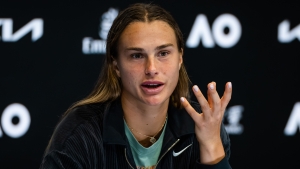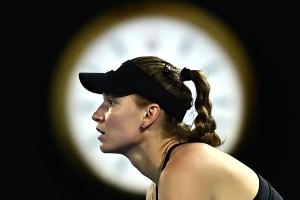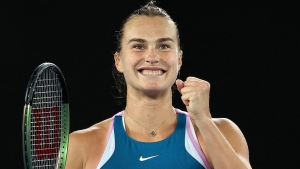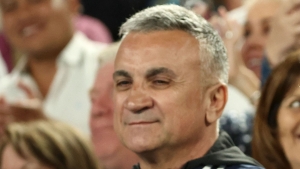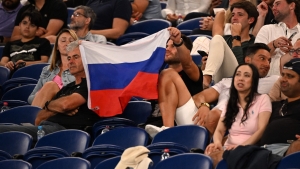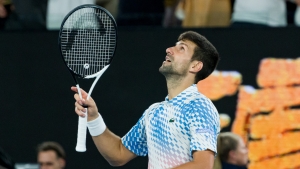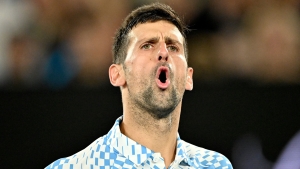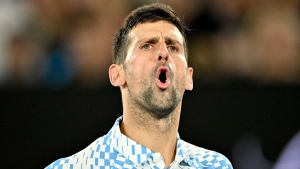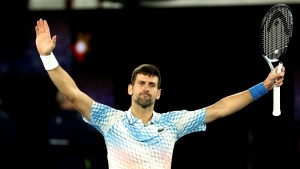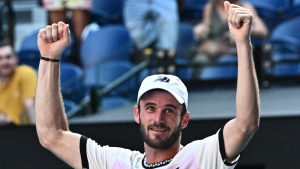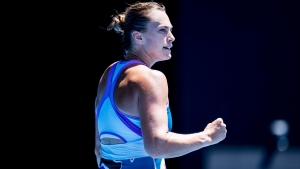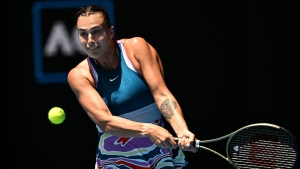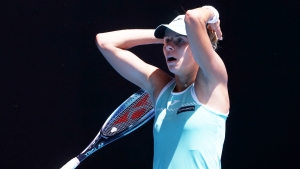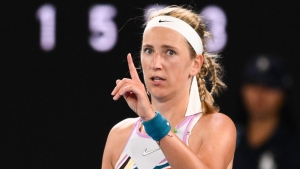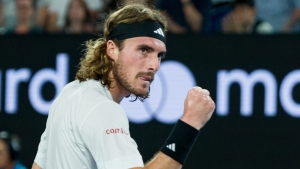Elena Rybakina is thrilled her parents will be on hand for Saturday's Australian Open final after they were unable to witness her Wimbledon triumph.
The Moscow-born 23-year-old, now competing for Kazakhstan, achieved a grand slam breakthrough when she overcame Ons Jabeur to triumph at the All England Club last July.
It was a victory that was tinged with sadness, though, with father Andrey and mother Ekaterina not able to obtain visas to travel from Russia to London.
Rybakina broke down in tears in a press conference after her Wimbledon triumph when asked about her absent parents, but they are with her in Melbourne and will be in the stands to watch the title match against Belarusian Aryna Sabalenka.
A 7-6 (7-4) 6-3 win against two-time champion Victoria Azarenka on Thursday carried Rybakina through to the showpiece match.
When she was asked whether being on site makes the occasion more special for her parents, Rybakina said: "For sure it's great for them. I didn't even talk with them yet, but I'm sure they're happy. They don't see me often playing live, so I think this time it's a big result already.
"No matter how I play in the final, I think they're very proud and happy.
"For sure they're nervous. I think every match I play they're nervous, no matter if it's live or they're watching on TV. You can never get used to this. Of course, you're going to be nervous no matter if it's first round or final."
Rybakina has lost her three previous matches against Sabalenka, with each of them following the same pattern. Sabalenka has won the first set every time, dropped the second, and then come back to convincingly take the decider.
They have not played since 2021, however, and Rybakina has become a slam champion since then, while Sabalenka still awaits a breakthrough on that scale.
Given Sabalenka is unbeaten in 10 matches this year and has yet to even drop a set, Rybakina may still have her work cut out at the weekend.
However, Rybakina is the player who sank the title hopes of world number one Iga Swiatek in round four, and she also saw off the dangerous Jelena Ostapenko, a former French Open winner, before toppling Azarenka.
"It was a great challenge for me because for sure they have experience of winning grand slams, so it was nothing new for them," Rybakina said. "For me this time I would say it was a bit easier also compared to Wimbledon when I was playing for the first time in the quarters, semis, final.
"For sure, they're very experienced players. I knew that I have to focus on every point. I think in the end I did real well."
The difference between Rybakina before last year's Wimbledon and the player now in the hunt for a second grand slam is obvious.
She knows there are no limits for her at these tournaments, having gone all the way, whereas Sabalenka has never previously contested a singles slam final.
"Everything was new at Wimbledon. Now I more or less understand what to expect," Rybakina said.
Her parents have a grip on what she can achieve too, and Andrey's suggestion she should have gone to college as a teenager rather than join the professional ranks is something they can now laugh off.
"Well, we didn't talk about this, but I will ask for sure now since you mention it," Rybakina said, when her father's advice was brought up. "For every parent, it's difficult to make any decision because I'm young and of course I want to play. For them, they're worried if I will be injured or something.
"But I think he's happy and he's very proud. I know that from the beginning, they believed in me no matter if I will lose first round or anything as a junior because they saw also potential, how I loved the game. I think they're just proud now."























